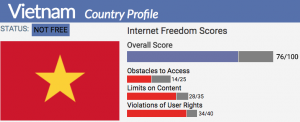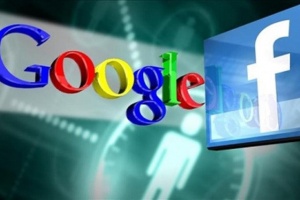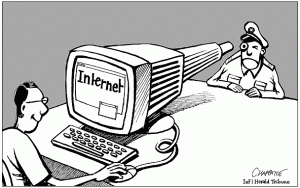Cybersecurity Law in Vietnam
On January 1, 2019 the Vietnamese National Assembly instituted the revolutionary Cybersecurity Law [1]. The new law imposes extreme restrictions on user freedom online in hopes of preventing cyber crimes. Defaming the government, spreading false information, and promoting radical ideas on the internet are all punishable under the new law. In addition, the law limits the content that is acceptable to post online and any information flagged by the government must be removed immediately [2]. Moreover, social media companies and other online services have to comply to new data localization guidelines that require them to collect Vietnamese user data and report it to authorities when requested [1]. The implementation of the Cybersecurity Law has caused significant backlash from online service providers and Vietnamese people for infringing on the privacy rights of Vietnam citizens.
Contents
Internet Censorship In Vietnam
[2]Vietnam has had strict internet regulations since 2013, yet nearly 54% of the population is online [3]. Vietnam uses a combination of firewalls, controls, and other forms of censorship on the internet to limit anti-government propaganda and other harmful behavior [4]. Many websites containing information about democracy and freedom are blocked. Whenever deemed necessary, authorities can restrict internet access to citizens. However, their efforts are not limited to technical controls, Vietnam implements legislation and provides education that furthers their security intentions [5]. The rigor of Vietnam’s internet censorship follows similar patterns to those of its neighbor, China. Punishments for not complying to Vietnam's internet standards include internet restriction, blockage from telecommunication networks, or worse, jail-time.
Social Media Companies
Prohibited Content
More than half of Vietnam’s population are social media users. The most popular social media sites in Vietnam are Facebook, Youtube and Google [6]. However, the main attraction of social media was the absence of government regulation, making it one of the few platforms for activists to express their dissents. Yet, the Cybersecurity law requires social media companies to remove or block any information considered toxic. Most prohibited content denounces the Vietnam regime or promotes radical ideas. In 2017, prior to the cybersecurity law, Google had to remove over 6000 YouTube videos [6]. Similarly, authorities have asked Facebook to remove hundreds of accounts. The new law requires social media companies to remove the information requested by authorities within 24 hours. [2].
Data Localization Policies
The Cybersecurity law also requires prominent social media companies such as Facebook and Google to build offices in Vietnam to provide local data storage [6]. Currently, both companies serve Vietnam from their offices in Singapore. The data localization policy specifies that social media companies must collect personal data on users that are Vietnam citizens. Authorities may require companies to store information pertaining to a user's name, contact information, relationships or activities online. However, the government can also make companies store even more invasive data, such as a user's job title, medical records, and address [1]. This information must be surrendered to the government when requested. The Cybersecurity law also states that the government determines how long social media companies must store this data. Some social media companies believe the new data localization policies are a privacy violation and have to choose between complying to the Cybersecurity law or their own terms of service [1].
Vietnamese Citizens
The actions of Vietnamese citizens are closely surveilled and monitored online. Any offensive commentary posted about the Vietnam regime can be subject to punishment under the Cybersecurity law. Previously, online forums and blogs were one of the only ways for Vietnamese activists to spread their beliefs to a large audience. Radical bloggers and activists were still occasionally given harsh prison sentences for posting slander online, but there were no clear legislative policies. Blogger Hoang Duc Binh received the longest sentence to date and suffered 14 years in prison [2]. Under the new law any blogger caught making an offensive comment online can be convicted of a crime or restricted internet access. The punishment for the crime varies based on the severity of the statement. The government implemented a 10,000 person military unit to exploit offensive content online [2]. However, the government’s ability to manipulate the information posted online by a Vietnamese citizen can be seen as an unauthorized invasion of personal information, and thus a breach of privacy [7]. The government shows no respect to privacy in regards to non conforming opinions and commentary.
Ethical Implications
Surveillance
Across the world the Cybersecurity law has been denounced repeatedly for its absence of privacy protection for the Vietnamese people. Many critics argue the law exhibits zero regard for privacy on the internet and has destructive outcomes for freedom of expression [8]. Every act by citizens and online service providers is closely monitored and scrutinized. Constant surveillance in a public space produces ambiguity on who is monitoring actions and when [9]. Surveillance causes a significant loss of freedom because it changes a person’s experience in that space. This has devastating consequences for privacy because a person’s sense of self-ownership is restricted, which affects their identity [9]. Communities online used to be the only way to escape from Vietnam’s oppressive climate, but now even this outlet is tainted. Many believe the Cybersecurity law is solely to protect the government’s monopoly on power instead of for cyber security purposes [8].
Anonymity
The government’s requirement that online service providers must collect excessive amounts of data on users greatly limits an individual’s capacity to be anonymous online. So much data is collected about a user's actions and relationships and if coordinated, can easily provide identifiability [7]. When examined individually, a user’s actions can be difficult to trace back to them. However, when grouped together these actions can reveal identifying characteristics about the user [7]. Moreover, overtime a pattern may form from a user’s online activity which can reveal personal details about their life. By using sophisticated data analysis tactics, the government can identity citizens who do not conform to their beliefs and standards. Anonymity provides safety, freedom, and security. Users value anonymity as a means of maintaining privacy and the Cybersecurity law restricts this ability.
References
- ↑ 1.0 1.1 1.2 1.3 “Update: Vietnam's New Cybersecurity Law.” HL Chronicle of Data Protection, 14 Nov. 2018, www.hldataprotection.com/2018/11/articles/international-eu-privacy/update-vietnams-new-cybersecurity-law/.
- ↑ 2.0 2.1 2.2 2.3 2.4 “Vietnam.” Vietnam Country Report, 11 Feb. 2019, freedomhouse.org/report/freedom-net/2018/vietnam.
- ↑ Luong, Dien. “Vietnam's Internet Is in Trouble.” The Washington Post, WP Company, 19 Feb. 2018,www.washingtonpost.com/news/theworldpost/wp/2018/02/19/vietnam-internet/?utm_term=.fb2b4d4954d8.
- ↑ Warf, B. GeoJournal (2011) 76: 1. https://doi.org/10.1007/s10708-010-9393-3
- ↑ Subramanian, Ramesh, The Growth of Global Internet Censorship and Circumvention: A Survey (October 31, 2011). Communications of the International Information Management Association (CIIMA), Volume 11, Issue 2, 2011.
- ↑ 6.0 6.1 6.2 Nguyen, Mai. “Vietnam Set to Tighten Clamps on Facebook and Google, Threatening...” Reuters, Thomson Reuters, 18 May 2018, www.reuters.com/article/us-vietnam-socialmedia-insight/vietnam-set-to-tighten-clamps-on-facebook-and-google-threatening-dissidents-idUSKCN1IJ1CU.
- ↑ 7.0 7.1 7.2 “Privacy - Informational Friction .” The 4th Revolution: How the Infosphere Is Reshaping Human Reality, by Luciano Floridi, Oxford University Press, 2016.
- ↑ 8.0 8.1 Nguyen, Thoi. “Vietnam's Controversial Cybersecurity Law Spells Tough Times for Activists.” The Diplomat, The Diplomat, 4 Jan. 2019, thediplomat.com/2019/01/vietnams-controversial-cybersecurity-law-spells-tough-times-for-activists/.
- ↑ 9.0 9.1 Patton, J.W. Ethics and Information Technology-Protecting Privacy in Public? (2000) 2: 181. https://doi.org/10.1023/A:1010057606781


